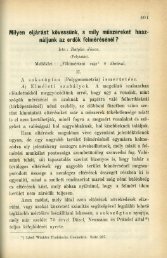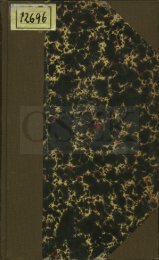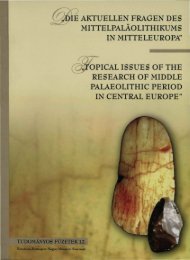Hungarian-Mesopotamian Dictionary (HMD)
Hungarian-Mesopotamian Dictionary (HMD)
Hungarian-Mesopotamian Dictionary (HMD)
You also want an ePaper? Increase the reach of your titles
YUMPU automatically turns print PDFs into web optimized ePapers that Google loves.
ALFRÉD TÓTH : HUNGARIAN-MESOPOTAMIAN DICTIONARY (<strong>HMD</strong>)<br />
<strong>Hungarian</strong><br />
Sumerian<br />
<strong>Hungarian</strong><br />
Sumerian<br />
<strong>Hungarian</strong><br />
Sumerian<br />
<strong>Hungarian</strong><br />
Proto-Ugric<br />
Sumerian<br />
Akkadian<br />
<strong>Hungarian</strong><br />
Proto-Finn-Ugric<br />
Sumerian<br />
Akkadian<br />
<strong>Hungarian</strong><br />
Proto-Finno-Ugric<br />
Sumerian<br />
<strong>Hungarian</strong><br />
Proto-Finno-Ugric<br />
Sumerian<br />
Akkadian<br />
<strong>Hungarian</strong><br />
Proto-Finno-Ugric<br />
Sumerian<br />
veréb “sparrow”<br />
buru (30x: ED IIIa, Ur III, Old Babylonian) wr. buru5mušen “bird(s), small<br />
birds, sparrow; flock of birds”. Engl. sparrow, Germ. Sper-ling < Proto-<br />
Germanic *sparwan < PIE *sper-, but since this may be one of the several<br />
cases with prosthetic s-, PIE *(s)per- probably < Sum. buru.<br />
verem “cave, den, hole, pit”<br />
bur (85x: ED IIIa, ED IIIb, Lagash II, Ur III, Old Babylonian) wr. bur; na4bur<br />
“bowl”, burud (49x: Old Akkadian, Ur III, Old Babylonian) wr. burudx(U)<br />
“breach, hole; depression, low-lying area, depth; to perforate; (to be) deep”<br />
vért “armour, cuirass”<br />
gur (35x: Old Babylonian) wr. gur21; kušburu4mušen; eur2 “shield”<br />
vese “kidney”<br />
*w8ćз “penis”<br />
ĝeš (47x: Old Babylonian) wr. ĝeš3; mu “penis; male”<br />
išaru. Since the Akk. and Rhaet. word are borrowings form the Sum. word,<br />
Akk. Rhaet. išaru < *viśaru (still conserved in the name of the Akk.-Rhaet.<br />
death-ghost Rhaet. Vitammu, Akk. Itammu, Etemmu, cf. Brunner and Tóth<br />
1987, p. 61) with initial v- still conserved in Hung. vese. Therefore, the Hung.<br />
cannot originate directly in the Sum., but in the Akk., Rhaet. word.<br />
vésni “to chisel, to cut”<br />
*wäńgćз(-) “to cut; knife”<br />
peš, wr. peš6 “to slice”<br />
paşādu<br />
vészni “to get lost”, veszteni “to lose”<br />
*wočз- “to be lost”, *wäsз- “to disappear, to get lost”<br />
uš (3556x: ED IIIb, Old Akkadian, Lagash II, Ur III, Early Old Babylonian,<br />
Old Babylonian) wr. uš2 “to die; to be dead; to kill; death”<br />
vessző “rod, twig, verge”<br />
*waćз “narrow, thin bent branch”<br />
ĝeš (5552x: ED IIIa, ED IIIb, Old Akkadian, Lagash II, Ur III, Early Old<br />
Babylonian, Old Babylonian, unknown) wr. ĝeš; mu; u5 “tree; wood”<br />
işu < *wişu (cf. s.v. vese)<br />
vetni “to cast, to fling, to throw; to drill, to sow”<br />
*wettä- “to throw”<br />
gid (13x: Ur III, Old Babylonian, Middle Babylonian) wr. gid2 “to transfer”<br />
<strong>Hungarian</strong><br />
Proto-Finno-Ugric<br />
vezetni “to lead, to guide”<br />
*wetä-<br />
Sumerian gid (13x: Ur III, Old Babylonian, Middle Babylonian) wr. gid2 “to drag, tow (a<br />
boat upstream); to pass along, transfer”<br />
___________________________________________________________________________________<br />
© Copyright Mikes International 2001-2007, Alfréd Tóth 2007 - 144 -


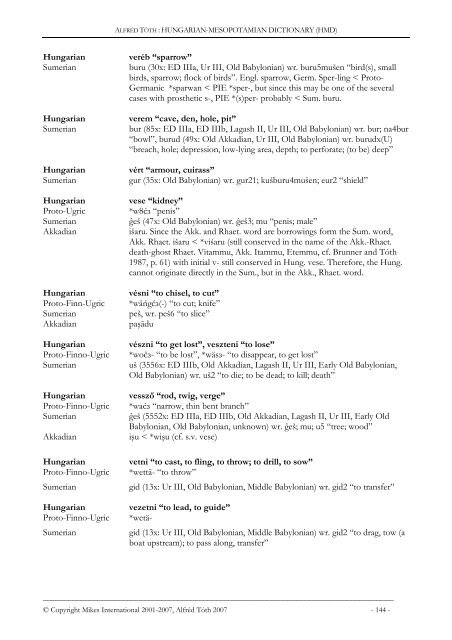


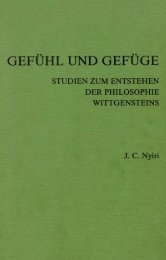
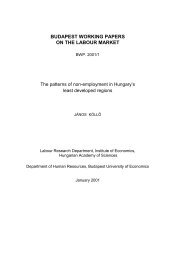

![Letöltés egy fájlban [4.3 MB - PDF]](https://img.yumpu.com/50159926/1/180x260/letaltacs-egy-fajlban-43-mb-pdf.jpg?quality=85)

